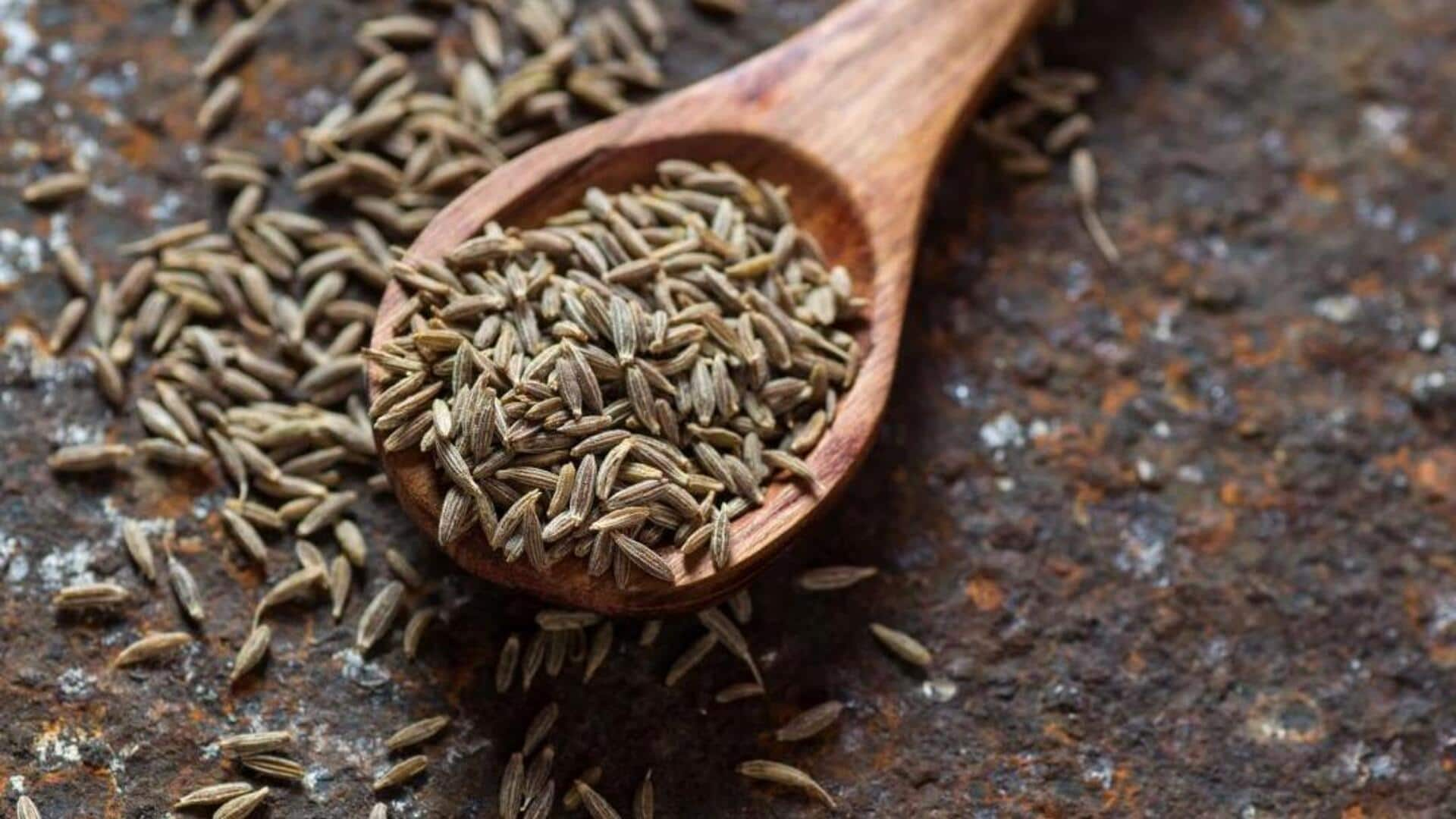
Cumin's potent antioxidant benefits explored
What's the story
Cumin, beloved in the Middle East and India for its distinctive flavor, holds a secret: it's a health superstar.
Its antioxidant properties are especially impressive, providing a shield against harmful oxidative stress.
This article delves into the science behind cumin's benefits and how incorporating it into your diet can boost well-being.
Antioxidant profile
A closer look at antioxidants in cumin
Cumin seeds are rich in antioxidants, powerful compounds that neutralize harmful free radicals in your body.
Free radicals are unstable molecules that can damage cells, potentially leading to chronic diseases.
Research indicates cumin boasts several potent antioxidants, including vitamin E, vitamin C, and flavonoids.
These compounds actively combat free radicals, helping to lower your risk of serious conditions such as heart disease and cancer.
Digestive aid
Boosting digestive health with cumin
Cumin, long used in traditional medicine as a digestive aid, has been shown to stimulate pancreatic enzyme secretion.
This can improve digestion and nutrient absorption.
Studies have found that adding cumin to the diet resulted in significant reductions in indigestion symptoms such as bloating and gas.
This is likely due to cumin's capacity to increase the activity of digestive proteins.
Immune support
Enhancing immune function through diet
Cumin's high antioxidant content significantly contributes to its immune-boosting properties.
By shielding cells from oxidative damage and inflammation, cumin strengthens the body's natural defenses against infections and diseases.
Regular intake of cumin is associated with enhanced immune response, making it a beneficial addition to meals for individuals aiming to boost their immunity.
Blood sugar regulation
The role of cumin in managing blood sugar levels
A major advantage of cumin relates to its potential for blood sugar control.
Several studies indicate that cumin consumption can significantly reduce blood sugar levels in diabetic individuals by affecting insulin production and sensitivity.
Although more research is required, incorporating cumin into your diet may be beneficial for individuals managing diabetes or at risk of developing the condition.
Easy integration
Incorporating cumin into your daily diet
Incorporating cumin into your everyday meals is easy and beneficial for your health.
Simply sprinkle ground cumin on roasted veggies or add it to soups and stews.
Not only will it add a delicious flavor, but it will also increase your antioxidant intake.
Boil a teaspoon of whole cumin seeds in water and drink it like tea.
It is not only a refreshing drink but also aids digestion.